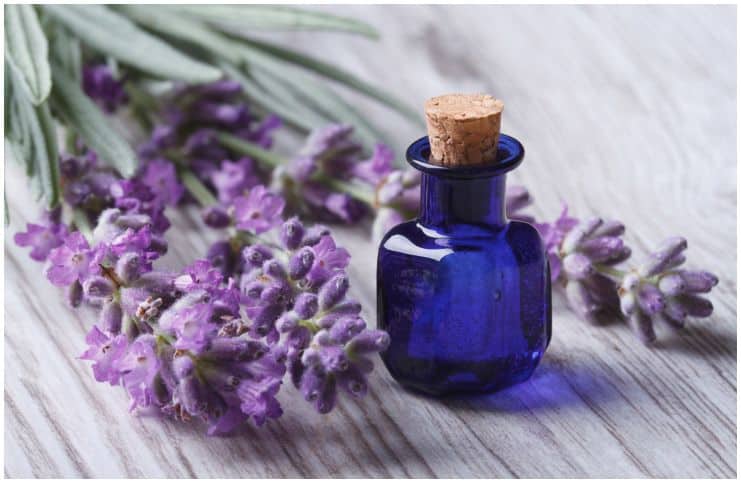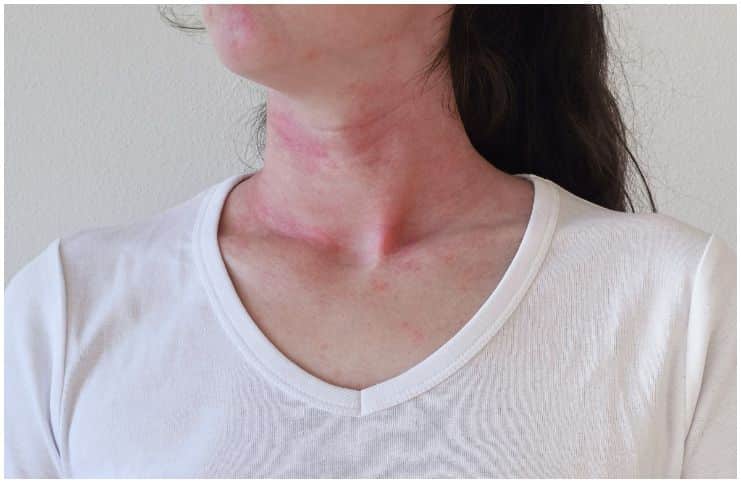Lavender Essential Oil – Side Effects & Health Benefits:
Lavandula (commonly known as lavender) is a genus of 39 known species of flowering plants in the mint family, Lamiaceae.
It is native to the Old World and is found from Cape Verde and the Canary Islands, Europe to eastern and northern Africa, the Mediterranean, and southwest Asia to southeast India.
The botanic name Lavandula, as used by Linnaeus, is considered to be derived from this and other European vernacular names for the plants. However, it is suggested that this explanation may be apocryphal and that the name may literally be derived from Latin “livere,” meaning “blueish.”
In addition, the English word lavender is frequently thought to be derived from Old French “lavandre,” ultimately from the Latin “lavare” (to wash), referring to the use of infusions of the plants.
Commercially, this herb is grown primarily for the production of its essential oil. In present days, it is also used in dressings and salads, and in aromatherapy, in which the scent of the essential oil from the flowers is inhaled.
Health Benefits
Some of the benefits include:
- it has a calming scent which makes it a good instrument for treating depression; Some studies have concluded that it may be quite useful for helping with low-level anxiety and mild sleep disorders. You can add a few drops to a bath or put a few drops in a diffuser.
- it is used as the main ingredient in some mosquito repellents.
- it is one of the most well-known natural remedies for pain relief.
- it is renowned as a good emmenagogue (a compound that helps to promote blood flow to the pelvis).
- it is remarkable for colds, throat infections, the flu, and sinus congestion.
- it’s great for treating minor burns and has efficient anti-inflammatory properties.
- it lowers mental and emotional stress while helping to increase mental activity and clarity of thought.
Side effects of lavender essential oil
Topical use of diluted oil or use of it as aromatherapy is commonly considered safe for most adults. However, when teas and extracts are taken by mouth, they may cause changes in appetite, headache, and constipation.
The U.S. National Institutes of Health does not recommend the use of this oil while pregnant or breastfeeding due to the lack of knowledge about its effects.
Furthermore, there are no known scientific reports of interactions between prescription medications and this oil. Due to the fact that this herb promotes relaxation, it may enhance the effects of central nervous depressants.
Gynecomastia
Gynecomastia is swelling of the breast tissue in men or boys caused by an imbalance of the hormones testosterone and estrogen.
There is a study by the National Institute of Environmental Health Sciences published in 2007, on the use of lavender and gynecomastia in prepubescent boys. Three young boys developed gynecomastia while using products containing this plant.
The boys stopped using the products, and the symptoms of gynecomastia disappeared.
The scientists found that this essential and tea tree oil can cause antiandrogenic and estrogenic activities in cell cultures, and the paper states that „repeated topical exposure to these oils probably caused prepubertal gynecomastia in these boys.”
Whether the oils elicit similar endocrine-disrupting effects in prepubertal girls, adolescent girls or women is unknown.
Skin Irritant
In 2004, a study by the School of Biosciences, University of Westminster, UK, found that this essential oil is cytotoxic to human skin cells in vitro, at a concentration of 0.25 percent, in all cell types tested (2).
On the other hand, aromatherapist Robert Tisserand points out in a blog article that: „Any type of in vitro test is only suggestive of a possible effect…” He continues – “You can never assume that the same side effect will take place in the living body.”
Surgery
This oil may enhance the effects of anesthesia and can slow down the performance of the central nervous system. Do not take the oil for at least 2 weeks before making any medical operation.
We strongly recommend that prior to using this oil, you seek the advice and recommendation of a qualified, trained healthcare advisor who is experienced in essential oil usage.
Note
- Be selective of where you purchase your essential oils; it’s important to use only pure, quality oils, and to completely avoid the synthetic oils.
- When using an essential oil for the first time, you must do a skin patch test. Dilute with pure vegetable oil (almond or olive). Furthermore, if irritation occurs, immediately apply the pure vegetable oil to the irritated area to dilute.
- Avoid getting these oils in your nose, eyes, or ears.
- Essential oils should only be taken internally after receiving a prescription from a specialized aromatherapy practitioner.
- Keep these oils out of the reach of animals and children.
READ THIS NEXT:
5 Disadvantages of an Unhealthy Diet
13 Essential Oils For Psoriasis Treatment

